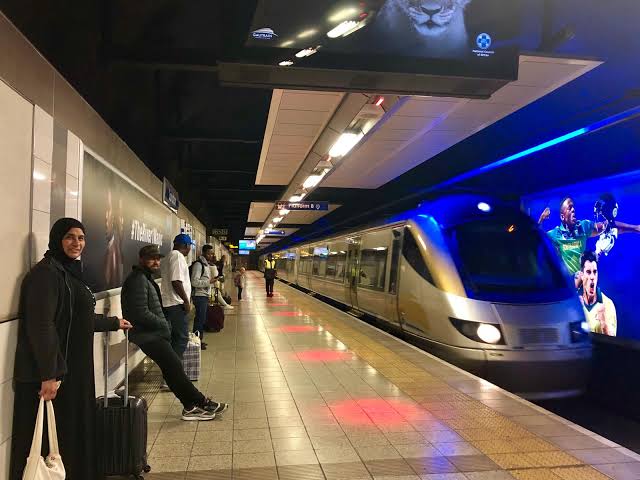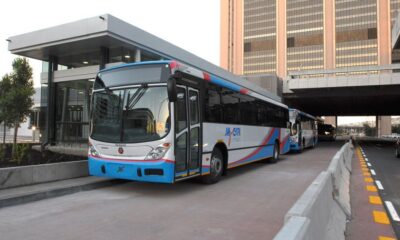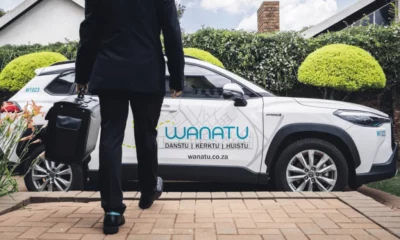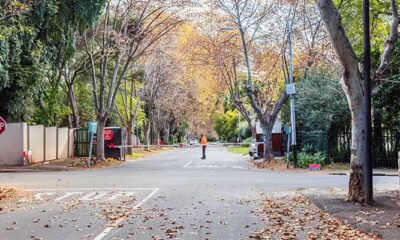Opinion
Gautrain vs Driving: Which Commute Makes the Most Sense for Gauteng?

Gautrain or Car? One Choice Stands Out for Gauteng Commuters
For many Gauteng commuters, the daily drive along the N1 can feel like a battle of patience, traffic lights, and fuel bills. As someone who travels between Johannesburg and Centurion almost every weekday, I decided to put the Gautrain to the test and see how it stacked up against drivingnot just in terms of cost, but also time, productivity, and environmental impact.
Launched in the early 2010s, the Gautrain connects Johannesburg, Pretoria, and OR Tambo International Airport with a high-speed rail network reaching up to 160 km/h, complemented by an integrated bus network to complete your journey. It’s the only South African infrastructure project rated A- by the South African Institution of Civil Engineering (SAICE), distinction that most other projects in the country can only dream of, as the average rating hovers around a D.
Cost Comparison: Train Fares vs Fuel Bills
Commuting isn’t just about time, it’s about money. I drive a fuel-efficient hatchback consuming 5.32 litres per 100km, yet fuel alone isn’t the full cost. Add insurance, car payments, and maintenance, and my daily drive clocks in at around R328.
The Gautrain, by contrast, requires a short drive to Rosebank station and daily parking at R1, combined with bus connections at R13–R29 depending on peak usage. Morning and evening train fares totaled R193 per day, meaning a 22-day work month would cost roughly R4,200 on a pay-as-you-go plan.
While monthly and weekly passes reduce costs by 7.5–15%, the train doesn’t make financial sense for someone already paying off a car. Fuel savings alone aren’t enough to justify the extra expense when factoring in car repayments and insurance.
Time on the Move: Convenience vs Commuting Stress
Driving is straightforward: my best-case scenario takes 35 minutes each way, assuming traffic behaves. The Gautrain, however, is more structured. From Rosebank to Centurion, my total travel timeincluding walking, bus transfers, and waitingcame to 2 hours and 12 minutes per day.
Trains run like clockwork, and the accompanying bus network can be tracked via the Gautrain app, making missed connections unlikely. Still, anyone living far from a station will find the train slower than their car, despite the high-speed service.
Productivity on the Move
Here’s where the Gautrain shines: commuting time becomes working time. I used the train to write emails, draft articles, and study for my CFA certification, a task impossible when driving. Even though Wi-Fi coverage is patchy in underground stations, I could consistently work around 2 hours per day during the commutea productivity bonus that can’t be measured in fuel or fare costs.
Carbon Footprint: Less Pollution, Big Impact
Public transport is a game-changer for environmentally conscious commuters. Even with my fuel-efficient car, the Gautrain cut my CO2 emissions by roughly 50%, from 9.47 kg per day down to 4.65 kg. Using the integrated bus system adds a little, but the overall reduction remains substantiala small but meaningful contribution to cleaner air in Gauteng.
The Verdict: Who Wins?
The Gautrain offers clear advantages:
-
A safer, stress-free commute
-
Time to work or study
-
Significantly reduced carbon emissions
Driving, on the other hand, is faster door-to-door for most, cheaper if you already own a car, and more flexible for off-station destinations.
Ultimately, the choice comes down to location, lifestyle, and priorities. For commuters living near stations and valuing productivity or environmental impact, the Gautrain is the clear winner. For those looking for speed, flexibility, or to save money while owning a car, driving still makes sense.
| Comparison per Day | Car | Gautrain |
|---|---|---|
| Cost | R328 | R193 |
| Travel Time | 1hr 10m | 2hr 12m |
| Work/Study Time | N/A | 2hr |
| CO2 Emissions* | 9.47 kg | 4.65 kg |
Between Centurion and Rosebank stations
For anyone debating whether to switch to rail, the Gautrain website provides tools to calculate your route and expected savings, but personal experience remains the ultimate guide.
{Source: BusinessTech}
Follow Joburg ETC on Facebook, Twitter , TikTok and Instagram
For more News in Johannesburg, visit joburgetc.com



























